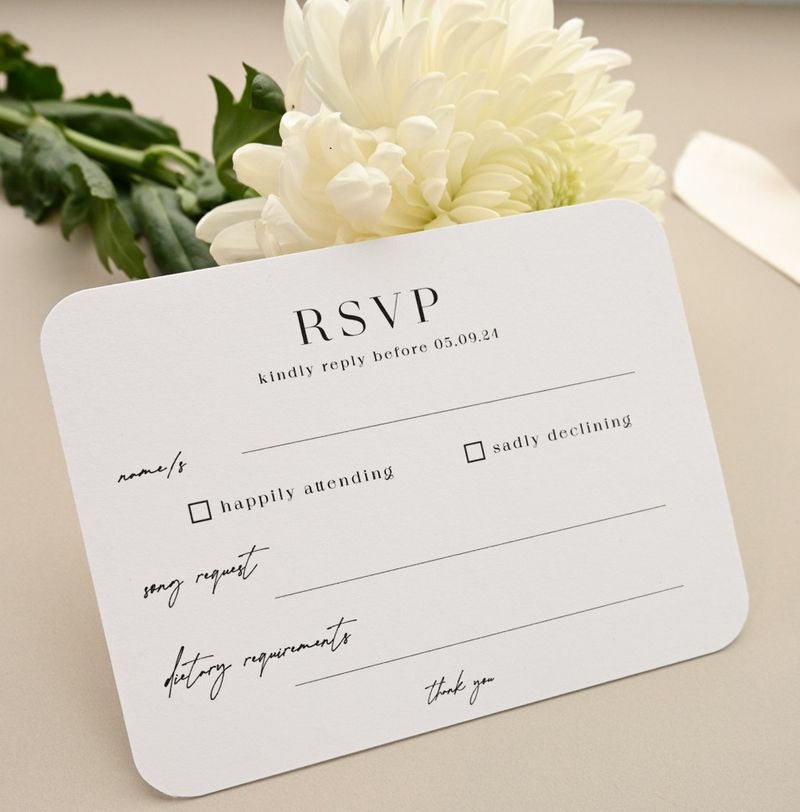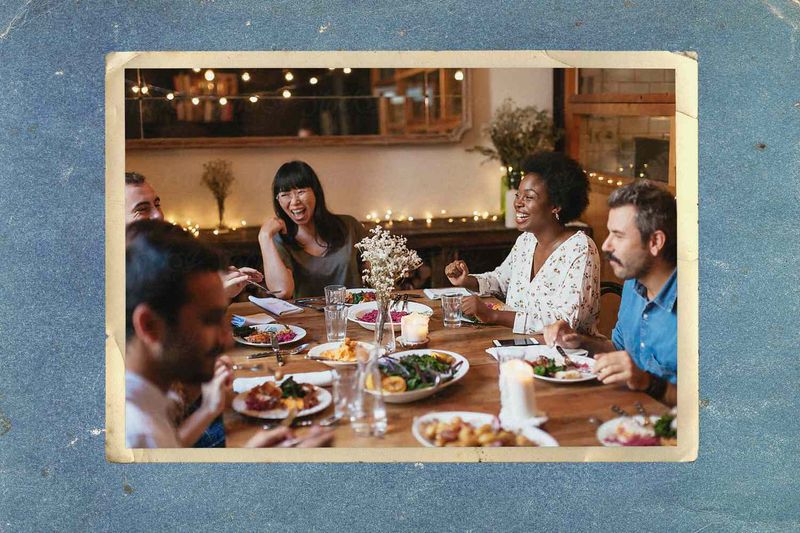Social etiquette is constantly changing. What our grandparents taught us as polite behavior might actually make people uncomfortable today. As society evolves, so do our expectations about respectful interactions. Here’s a look at formerly ‘polite’ habits that now miss the mark in our more aware and inclusive world.
1. Insisting on “Ladies First”
Holding doors open for women used to be the gold standard of gentlemanly behavior. Today, many women find this gesture uncomfortable when overemphasized or performed with theatrical flourish.
The problem isn’t basic courtesy but the assumption that women need special treatment based solely on gender. Modern perspectives value treating everyone with equal respect rather than different standards based on gender.
The evolution reflects our shifting understanding of equality. Many people now prefer gender-neutral courtesy where we hold doors for anyone nearby, regardless of gender – simply because it’s kind, not because someone is perceived as weaker or deserving special treatment.
2. Asking Women When They’re Having Kids
Family gatherings once featured this question as casual conversation. Relatives would innocently inquire about baby plans, assuming everyone wanted children and could have them easily.
We now recognize this question touches on deeply personal matters. Some couples struggle with infertility, face financial barriers to parenthood, or simply choose not to have children.
The question creates uncomfortable pressure in social settings. When someone faces monthly disappointments trying to conceive or has recently experienced a miscarriage, this seemingly innocent inquiry can trigger genuine emotional pain. Modern etiquette suggests waiting for others to bring up their family planning rather than probing.
3. Addressing Strangers by Pet Names (Honey, Sweetie, etc.)
Bank tellers, servers, and store clerks once used endearments freely. “What can I get for you, sweetie?” or “Here’s your change, hon” were meant to create friendly connections with customers.
These terms now often land differently, especially across generational or power divides. When an older man calls a young professional woman “darling” in a business meeting, it can undermine her authority and create discomfort.
Regional differences still exist – in some Southern states, these terms remain common and harmless. However, in professional environments or urban settings, using someone’s actual name or a simple “sir” or “ma’am” shows more genuine respect for boundaries and personal dignity.
4. Automatically Offering to Help Someone Without Asking
Grandparents taught us to jump in and help others without hesitation. Taking over tasks for elderly people or those with visible disabilities seemed like basic kindness.
Modern understanding recognizes this approach can feel infantilizing. When someone grabs a wheelchair without permission or takes items from someone’s hands without asking, they send an unintended message that the person is incapable.
The updated approach is simple: ask first. “Would you like some help with that?” acknowledges both the person’s autonomy and your willingness to assist. This small change transforms the interaction from potentially offensive to genuinely supportive, respecting everyone’s independence while still offering kindness.
5. Commenting on Someone’s Weight (Even Positively)
“You look great – have you lost weight?” once ranked as a top compliment. People meant well, assuming weight loss was always intentional and always positive.
Reality proves far more complicated. Weight changes often stem from stress, illness, medication, or depression rather than healthy habits. Even when intentional, drawing attention to someone’s body can reinforce harmful messages about worth being tied to appearance.
Modern etiquette suggests focusing compliments on choices rather than physical attributes. “That color looks fantastic on you” or “I always enjoy your energy” celebrates someone without potentially triggering body image issues. This shift recognizes that bodies aren’t public property for commentary, even when intentions are kind.
6. Writing Thank-You Notes for Everything
Formal thank-you notes once demonstrated proper upbringing. Grandmothers insisted on handwritten cards for every dinner invitation, small gift, or kind gesture.
Digital communication has transformed our expectations. While appreciation remains important, many now find immediate text messages more sincere than formal notes arriving days later.
The modern approach balances thoughtfulness with practicality. Significant gestures still warrant written thanks, but immediate verbal appreciation or quick electronic acknowledgment often feels more authentic for everyday kindnesses. This evolution reflects our changing relationship with time and communication, where immediacy and authenticity often matter more than formality.
7. Holding the Door Open from Too Far Away
Doorway courtesy once meant holding open doors regardless of distance. People would stand waiting, door propped wide, as someone approached from halfway across the parking lot.
The recipient then faced an awkward choice: maintain their comfortable pace and make the holder wait unnecessarily, or break into an uncomfortable jog to acknowledge the gesture. Neither option feels particularly dignified.
Courteous door-holding now considers proximity. The three-second rule works well – if someone will reach the door within three seconds at their current pace, holding it makes sense. Beyond that, allowing people to manage their own entrances respects both their pace and your time, avoiding that awkward door-dash completely.
8. Refusing to Split the Bill
Traditional etiquette dictated clear rules about who pays. Men covered dates, hosts paid for meals, and seniors treated juniors – refusing offers to contribute was considered proper manners.
Modern relationships value financial equality. When someone repeatedly insists on paying despite another’s clear desire to contribute, it can create uncomfortable power dynamics or feelings of indebtedness.
Contemporary approach values communication over rigid rules. Sometimes one person genuinely wants to treat, while other situations call for splitting costs. The truly polite approach involves listening to others’ preferences rather than imposing traditional expectations. This flexibility acknowledges diverse financial situations and relationship dynamics while respecting everyone’s dignity.
9. Asking Someone About Their Job Right Away
“So, what do you do?” served as the standard conversation opener for decades. Career defined identity, and discussing work seemed like safe, neutral territory for small talk.
Today’s perspective recognizes this question’s complexity. For someone recently laid off, struggling in a low-status position, or taking time away from work, this immediate focus on occupation can feel judgmental or reductive.
Modern conversationalists often explore broader interests first. “What keeps you busy these days?” or “What are you passionate about?” allows people to share what truly matters to them – whether that’s career, hobbies, volunteer work, or family. This approach acknowledges that humans are multidimensional, with value beyond their paycheck or professional title.
10. Sending Food Back at Restaurants
Etiquette books once encouraged politely returning unsatisfactory meals. The philosophy maintained that paying customers deserved exactly what they ordered, prepared to their specifications.
Modern restaurant culture recognizes the complexity behind this interaction. Kitchen staff often face intense pressure, low wages, and challenging conditions. Sending back food for minor issues can create unnecessary stress and waste.
Today’s balanced approach reserves returns for legitimate problems – undercooked meat, allergen concerns, or significant preparation errors. For minor preferences or slight variations from expectations, many now choose gracious acceptance. This shift acknowledges both customer satisfaction and respect for food service workers, finding middle ground between assertiveness and consideration.
11. Overly Formal Greetings (Ma’am/Sir)
Addressing strangers as “sir” or “ma’am” once demonstrated universal respect. Children especially were taught these terms as non-negotiable basics of politeness.
Today’s social landscape reveals complications with these seemingly innocent honorifics. Young women often feel prematurely aged by “ma’am,” while gender-nonconforming individuals may feel misgendered by either term.
Regional and generational differences still influence expectations. In many Southern communities, these terms remain expected and appreciated. However, in diverse urban environments or when speaking with younger generations, a friendly tone without honorifics often creates more comfortable interactions. This evolution reflects growing awareness of diverse gender identities and changing perceptions of formality across generations.
12. Giving Unsolicited Advice
Sharing wisdom once demonstrated care and experience. Older generations freely offered parenting tips, relationship guidance, or career suggestions as a way of helping others avoid mistakes.
Contemporary understanding recognizes how this approach can undermine confidence and autonomy. When someone shares a challenge and immediately receives solutions rather than empathy, they often feel judged rather than supported.
The updated approach starts with listening and asking permission. “That sounds difficult – would you like suggestions or just someone to listen?” acknowledges both your willingness to help and the other person’s agency in determining what help looks like. This small shift transforms potentially offensive advice-giving into genuine support that respects others’ capabilities.
13. Expecting a Handwritten RSVP
Formal invitations once included small cards for mailed responses. Proper etiquette demanded handwritten replies within days of receiving an invitation, regardless of the event’s formality.
Digital communication has transformed these expectations entirely. For most gatherings, requesting paper RSVPs creates unnecessary complications – delayed responses, tracking issues, and environmental waste.
Modern hosts balance tradition with practicality. While elegant weddings might still warrant formal responses, most events now offer digital options. Text messages, event apps, or email RSVPs provide immediate confirmation while respecting everyone’s time and resources. This evolution acknowledges changing communication norms while still honoring the importance of clear guest counts.
14. Commenting on What Someone’s Eating
Food observations once seemed like natural conversation. “Is that all you’re having?” or “Wow, that’s a lot of food!” were casual remarks without perceived judgment.
Greater awareness of eating disorders and body image issues has changed this perspective entirely. Comments about portion sizes, healthiness, or calorie content can trigger serious anxiety for those with complicated relationships with food.
Current etiquette suggests avoiding food commentary altogether. Everyone has different nutritional needs, dietary restrictions, hunger levels, and personal preferences that aren’t apparent to observers. Letting people eat in peace without commentary demonstrates true respect. This shift recognizes food choices as personal rather than public matters, protecting everyone’s right to nourish themselves without explanation.
15. Pressuring Guests to Eat More
Generous hosts once demonstrated hospitality by insisting guests take second helpings. “You’ve hardly eaten anything!” served as a loving encouragement to enjoy more food, showing abundance and care.
Modern understanding recognizes the complexity behind eating choices. Guests might follow specific diets, manage health conditions, or simply know their own hunger cues better than hosts possibly could.
Today’s gracious hosting offers without pressure. “There’s plenty more if you’d like seconds” acknowledges both your generosity and their autonomy. Food allergies, diabetes, eating disorder recovery, and countless other invisible factors might influence someone’s plate. Respecting their decisions about what and how much to eat shows deeper consideration than pushing more food.















